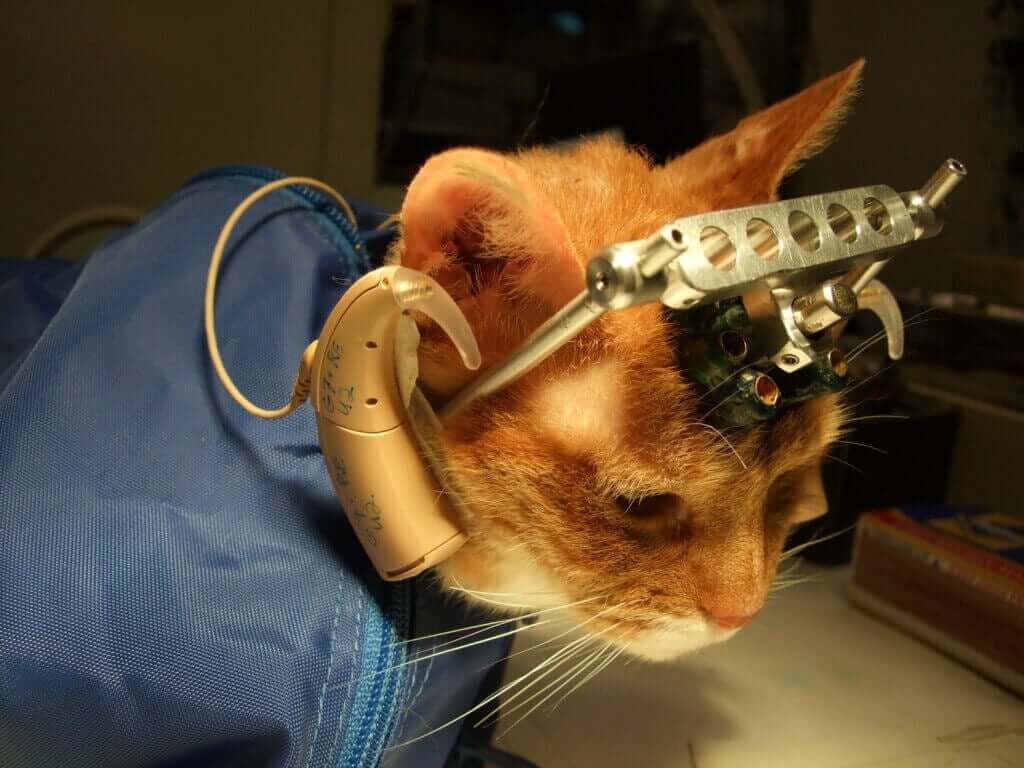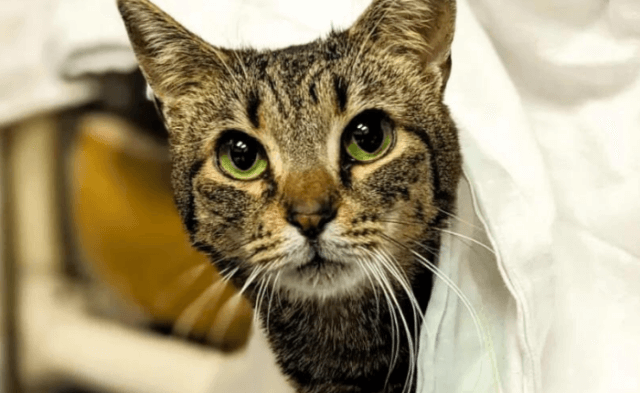The experimentation industry exploits and tortures animals in worthless junk-science studies. PETA is committed to ending the suffering of animals while also advancing superior, human-relevant research. Let’s face it: Animal tests don’t work. Here are just a few highlights of the work PETA has done to modernize medicine and save animals:
Modernizing Medical Training
- Intubation training on cats and kittens in the U.S. is history, thanks to PETA! Following pressure from our campaigns, dozens of hospitals and colleges, including Cincinnati Children’s Hospital Medical Center and Washington University in St. Louis, switched to training physicians and medical students on simulators that accurately replicate human infant anatomy, rather than shoving plastic tubes down cats’ tracheas.
- PETA persuaded the University of Tennessee Health Science Center to stop using live animals in surgical and emergency medical residency training programs on its Chattanooga campus and pushed multiple programs, including UT Southwestern Medical Center, Aurora Sinai Medical Center, and Rush University Medical Center, to stop using animals in obstetrics and gynecology training—sparing pigs painful, invasive, and ultimately fatal procedures on their uteruses, ovaries, and fallopian tubes.
- After pressure from PETA and more than 75,000 of our supporters, Erlanger Health System announced a new policy banning its staff—including its emergency medevac provider, LIFE FORCE—from participating in medical training that uses animals. Previously, LIFE FORCE personnel were forced to attend training sessions and practice invasive procedures—including IV insertion, oral intubation, and chest tube insertion—on live pigs.
- Global pharmaceutical company Sanofi agreed to stop using animals in deadly training sessions for sales personnel and Johnson & Johnson banned the use of animals in deadly training sessions for sales representatives in North America after PETA pressed these multibillion-dollar companies to make positive changes.
- PETA has donated 124 TraumaMan surgical simulators, worth more than $3 million, to programs in 23 countries—including Albania, Bangladesh, Iraq, and Sudan—sparing more than 2,000 animals each yearand providing surgeons with superior, human-relevant training.

Schooling Universities in Compassion
- Relentless PETA pressure ended Texas A&M University’s breeding of dogs to develop crippling canine muscular dystrophy and experiments in which these dogs—many of whom struggled to walk and swallow—were subjected to painful biopsies and repeated stretching of their muscles with a motorized lever. Sixty dogs were liberated from Texas A&M, thanks to PETA’s campaign, which involved federal complaints and lawsuits; airplane banners, TV ads, and billboards; multiple protests and disruptions of sporting events and meetings of the school’s Board of Regents; 6 million messages from PETA supporters and physicians; and support from celebrities.
- Following an extensive PETA campaign—which included an open records lawsuit, demonstrations, ad campaigns, federal complaints, pleas from Bill Maher and James Cromwell, and more than 369,000 protest letters from the public—the University of Wisconsin–Madison ended its cruel and archaic “sound localization” experiments on cats. Experimenters had drilled holes into cats’ skulls, implanted electrodes in their brains, and implanted steel coils in their eyes. The cats were intentionally deafened and then killed. The laboratory closed, and the four remaining cats were adopted.
- St. Mary’s University in San Antonio ended experiments in which mice, rats, and other animals were starved, and the University of Georgia ended surgical training courses in which holes were cut into the throats, chests, and limbs of dozens of beagles and other animals. Both victories came after PETA and thousands of supporters contacted the schools.
Achieving Other Big Victories
- PETA has persuaded numerous pharmaceutical companies and universities to end the barbaric“forced swim test,” in which small animals are dropped into inescapable containers of water and forced to swim for their lives. AbbVie, Johnson & Johnson, Roche, Boehringer Ingelheim, AstraZeneca, Novo Nordisk, Pfizer, Bayer, Bristol Myers Squibb, Glaxo SmithKline, King’s College London, the University of Adelaide, the University of South Australia, Universidad del Valle, more than a dozen U.K. universities, and many others dropped the test after hearing from PETA.
- A PETA undercover investigation blew the lid off neglect, intense confinement, suffering, and death at a massive beagle-breeding facility owned by Envigo, which sold dogs to laboratories. Following federal citations for dozens of animal welfare violations, the U.S. Department of Justice filed a complaint against Envigo and its parent company closed the facility. PETA assisted in the rescue of some 4,000 beagles, who were finally given the opportunity to experience love, freedom, and respect for their individuality as members of a family.
- PETA scientists recommended a human simulator containing an artificial lung to engineers at Bolivian Catholic University San Pablo, who developed a new type of ventilator to treat COVID-19 patients. This spared pigs—the usual test subjects for these machines—the distress and harm of artificial ventilation.
- After PETA provided input to the National Council for Control of Animal Experimentation in Brazil, the nation ended the use of animals in cruel classroom experiments.
- The Netherlands requested the expertise of PETA scientists to aid in its plans to transition away from animal testing.
PETA has been a champion for animals exploited in laboratories. As 2023 comes to a close, we celebrate these victories and continue to work toward a future in which animals won’t be harmed in the names of science and medicine.





